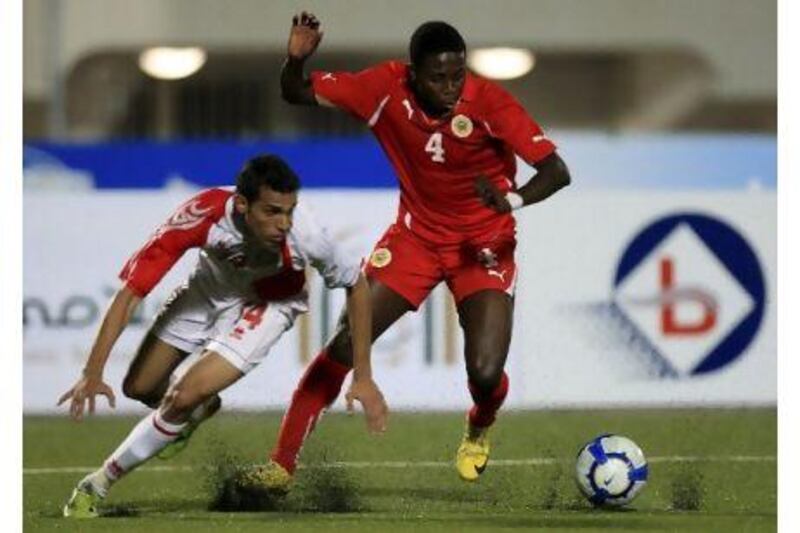Ali Kasheif arrived at the Sas al Nakheel School in Abu Dhabi yesterday carrying a small, wooden box. Inside was the glittering silver medal the goalkeeper and captain of the country's Olympic team won at the Asian Games last week. He smiled as onlookers stared at the medal and grasped it and felt its weight.
A rare prize for an Emirati footballer, but perhaps just the first of what might be a series of high-profile successes for the country's national teams.
The night before, the senior national team had beaten Bahrain 3-1 in Yemen to advance to the semi-finals of the Gulf Cup, a competition the UAE has won only once before.
"It was branded before the cup as a B team, a second-choice team," said Bernard Schumm, the director of coaching and development for the Football Association.
"But I saw them train and I had a positive feeling. I dare to predict that we can defeat Saudi Arabia and be in the final against Iraq."
Schumm said the two events - the Gulf Cup progression of a senior team stripped of several key performers along with the latest age-group success by the nation's young players - indicate that the country's two decades as a second-tier Asian football power are over.
"We are really first class, in Asia," he said. "We don't have to fear anyone in the Gulf and west Asia, and we are there where we can challenge anyone in east Asia, including Australia."
The turning point was a quiet one five or six years ago, Schumm said, citing an overhauled system for identifying and training young players.
"Now are watching them from 13 and 14 years old and training them and giving them international exposure and good coaching. The players who went to China are the first of this group, but I can promise you we have more behind them. I have seen them. For the next 10 years there should not be a competition in Asia where we cannot expect good results."
Kasheif, who is the Al Jazira goalkeeper, suggested that the Under 23 team's deep run in the Asian Games might have inspired the national team as they went to Yemen for the Gulf Cup.
"They saw our success and thought they can do the same," Kasheif said. "This team is playing very well, and I hope they can beat the Saudis and go to the final."
Schumm said several players in Yemen have enhanced their reputations, particularly the midfielder Subait Khater, "who has shown himself to be a true captain, a leader in attack and defence".
Kasheif expects more medals and more trophies for a country that last appeared in a World Cup in 1990.
"We now are thinking about the Asian Cup and qualifying for the [2012 London] Olympics and the next World Cup [in 2014]," he said. "The team that was in China is the core of those teams."
The next big test for the national side, after the Gulf Cup, is next month in the Asian Cup in Qatar, where the UAE are in a group with Iran, Iraq and North Korea.
In Qatar, the rising stars will be joined by the best of the older players. "I expect we will do well in more competitions in the future," Kasheif said.





